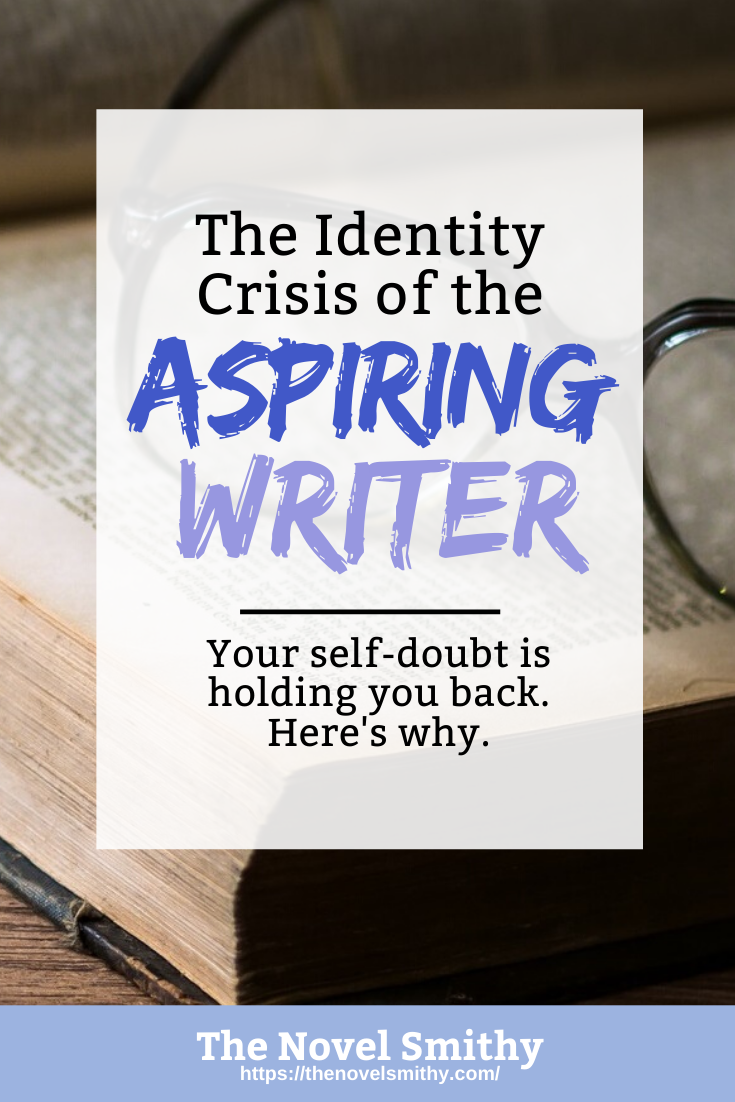The Identity Crisis of the “Aspiring Writer”
People go through many crises throughout their lives…
We’re fascinated by these struggles, from beginning puberty to entering adulthood, or the midlife crisis that has been the boon of comedy for ages. In such stories, our comedic hero looks in the mirror one morning and realizes his hair has gone grey, before going on a wild jaunt as he tries to reclaim his youth.
Writers aren’t that different from our protagonist above, except where he sees his softening belly and grey stubble as the cause for panic, a new writer sees the blank page, its cursor blink blinking in disapproval at them.
The “Aspiring Writer”
 While everyone goes through identity crises, beginning writers have to face a very specific one…
While everyone goes through identity crises, beginning writers have to face a very specific one…
The crisis of the “Aspiring Writer.”
This crisis haunts many of us starting out on our writing journey. When we talk to friends, it taunts us with its assumptions of amateurism. When we try to sell our skills to others it drags us down, because they want a writer—a “real” writer. And unfortunately, being an “aspiring writer” means you aren’t really a “writer.”
This crisis makes itself at home in our self-doubt. It implies that we haven’t accepted ourselves yet, haven’t recognized the worth of the stories and inspiration in our heads—essentially, that we think of ourselves as amateurs or even as failures.
Worst of all, it might also mean that we’ve yet to put a single word on the page, that we’ve refused the call to adventure of our writing journey.
The Secret to Being a “Good” Writer
As hard as it may be to accept, there is good news in all of this. All writers start out as amateurs, from the kids penning their first short story in kindergarten all the way to the Ernest Hemingways and J. R. R. Tolkiens of the world.
To be a “writer,” all you need to do is write.
Writers write, but “aspiring writers” don’t—and that’s the danger of this crisis. All writers go through this, but if we get bogged down by it, it can spell the end of our writing career. If your instincts are to recognize yourself as only aspiring to write, then it’s likely that you don’t write.
When you sit down to put words on the page, it becomes easier and easier to find an excuse for distraction—you need to check your email, check your phone, call your brother or neighbor, to watch that next episode of Bewitched, because you worked hard today and the last episode ended on a cliffhanger. And you did work hard, but in the 30 minutes it would take to watch the exploits of Samantha and Darrius, you could write the first paragraph of your own magical family drama. In a week you’ll have a page and in a month you’ll have a chapter. In a year, you may even have a book.
Without realizing it, you’ll have become a “writer.”
This seems like obvious advice. Why waste an entire post to talk about advice everyone has heard? “Fake it till you make it” is universal in the world of motivational posters and life coaches, but it’s something I wish I was told when I sat down in front of that blank page for the first time.
I stared at my cursor for three years and scrapped two different story ideas before I finally wrote something, and even then I wrote more out of frustration than confidence. The magic was that, after that first page, I wrote more and more. I spent less time talking to my blinking cursor and more time making it work for its dinner.
The masters were right:
“Amateurs sit and wait for inspiration, the rest of us just get up and go to work.” ― Stephen King
“There is no rule on how to write. Sometimes it comes easily and perfectly; sometimes it’s like drilling rock and then blasting it out with charges.” ― Ernest Hemmingway
“Any man who keeps working is not a failure. He may not be a great writer, but if he applies the old-fashioned virtues of hard, constant labor, he’ll eventually make some kind of career for himself as writer. ” – Ray Bradbury
At the end of the day, you already are a “writer.” So, sit down, put words on the page, and eventually those words might make a story worth reading. Fake it till you make it!
I believe in you. 🙂


This article was very helpful. Thank you!
Thanks for checking it out Hannah!